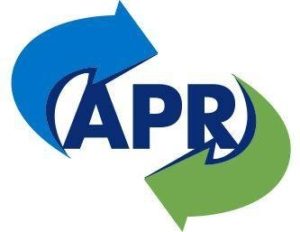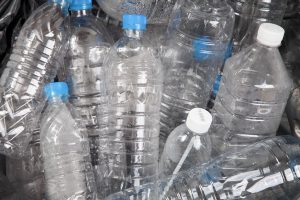
Conrad MacKerron
In the last two years, there has been a positive shift by previously recalcitrant brands to accept the importance of packaging recycling as part of total product life cycle and to commit to increasing packaging recyclability.

Conrad MacKerron
In the last two years, there has been a positive shift by previously recalcitrant brands to accept the importance of packaging recycling as part of total product life cycle and to commit to increasing packaging recyclability.
 Working with the ever-changing stream of packaging innovations is a constant challenge for the plastics recycling industry.
Working with the ever-changing stream of packaging innovations is a constant challenge for the plastics recycling industry.
 The PET package has come a long way since the founding of the National Association for PET Container Resources in October of 1987.
The PET package has come a long way since the founding of the National Association for PET Container Resources in October of 1987.
 During the past year, the national average price of post-consumer PET beverage bottles and jars rose steadily by 68 percent, from 8.6 cents per pound in March 2016 to the current 14.5 cents per pound.
During the past year, the national average price of post-consumer PET beverage bottles and jars rose steadily by 68 percent, from 8.6 cents per pound in March 2016 to the current 14.5 cents per pound.
 The national average price of post-consumer PET beverage bottles and jars has been increasing steadily since January. On Jan. 3, the national average price was 10.8 cents per pound. It has moved up 40 percent to the current 15.1 cents per pound.
The national average price of post-consumer PET beverage bottles and jars has been increasing steadily since January. On Jan. 3, the national average price was 10.8 cents per pound. It has moved up 40 percent to the current 15.1 cents per pound.

Clarissa Morawski
Single-use packaging is easy to spot. A short walk along a beach, anywhere in the world, will reveal the consequences of our throwaway culture as each tide brings in a fresh layer of debris, most of it single-use plastics.
 Our monthly look at values for common post-consumer materials shows steadiness in recovered PET, HDPE and film grades.
Our monthly look at values for common post-consumer materials shows steadiness in recovered PET, HDPE and film grades.

Jonathan Levy
Over the past several months, the Institute of Scrap Recycling Industries (ISRI) has been studying the issue of degradable additives and how the inclusion of these compounds in the manufacture of plastic items can impact their recyclability. Continue Reading
 Our monthly markets update shows prices have been healthy for recovered PET and HDPE containers, but they’ve fallen for films.
Our monthly markets update shows prices have been healthy for recovered PET and HDPE containers, but they’ve fallen for films.
 While prices for recovered PET and HDPE have remained steady or increased, post-consumer film values continue to nose-dive.
While prices for recovered PET and HDPE have remained steady or increased, post-consumer film values continue to nose-dive.

